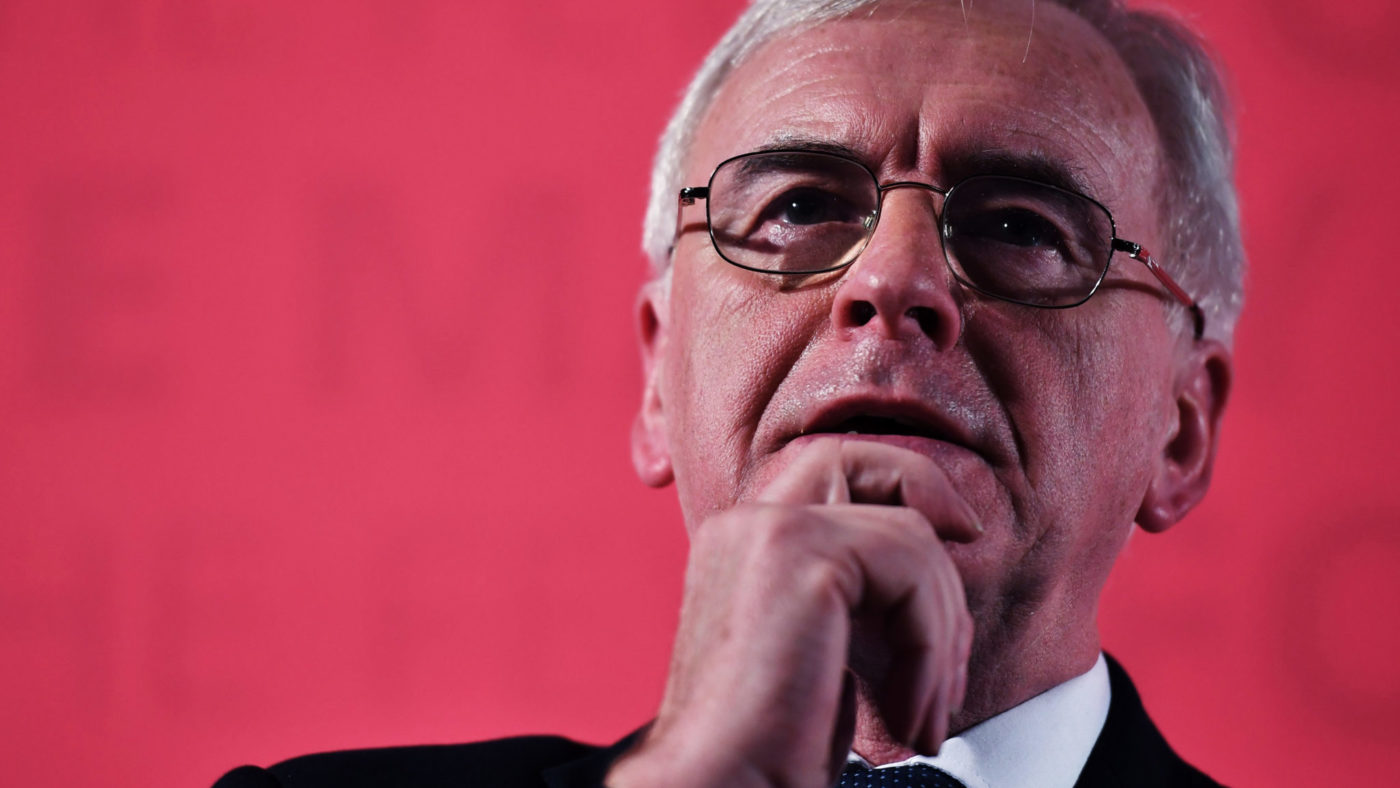Rampant inflation, failing industries, blackouts, industrial strife, rubbish piled up on the streets, the dead left unburied, and a sugar shortage. Britain, once the richest and most powerful nation on earth, had seen decades of decline after the victory of the Second World War. It was a shadow of its former self, regarded as the ‘sick man of Europe’, a role previously played by the Ottoman Empire in the late 19th Century.
This was the UK in the 1970’s and it is, if the contents of his speech at the TUC is anything to go by, is the future that John McDonnell wants.
The main issue facing the UK in the 1970’s was the power of the trade unions. The union barons could hold the government to ransom as they demanded higher pay. The end result was stagflation – an unpleasant combination of stagnant economic growth and inflation.
There is, of course, nothing inherently wrong with trade unions. Workers should have every right to freely associate with one another and are perfectly entitled to use the power this gives them to bargain for higher wages and better working conditions. However, the plans of the self-proclaimed Marxist shadow chancellor would be bad for businesses, damage the economy, and ultimately hurt the people he claims to want to help: workers and the poor.
Let’s take their proposals for intervening in the ‘gig economy’. Placing onerous restrictions on companies will restrain and restrict their opportunities for growth. For example, research conducted by KPMG revealed that regulations imposed on businesses have a detrimental impact on growth and damage their profit margins. As a result, companies have no choice but to pass on these extra costs to consumers. The evidence overwhelmingly demonstrates that increased interference in business results in higher prices for consumers. This is the case with both small entrepreneurial firms which disrupt industries, and also larger, more established, companies.
Imposing new restrictions on firms, such as banning zero hours contracts, will not only increase costs for consumers, but will also harm workers. Increased costs and regulations will mean that businesses will have little choice but to reduce their workforce. For example, the government demanding that organisations increase wages reduces employment opportunities, especially for low-skilled workers.
There is a great deal of academic evidence which supports this. A study conducted by Clemens and Wither which examined the impact of increasing the minimum wage in the US during the Great Recession found that minimum wage increases reduced the national employment-to-population ratio by approximately 0.6 per cent. A review of the academic literature demonstrates that it is the young and the low-skilled who are most adversely affected.
The story is the same with increased labour restrictions. There are numerous examples around the world of the impact of labour laws. In situations where restrictions increase, it is the workers who ultimately suffer. However, when there is a higher degree of freedom workers benefit. In New Zealand, the liberalisation of labour laws saw unemployment plummet from 11 per cent in 1991 to less than four per cent in 2007. During the same period the labour force participation rate increased from 63 per cent to 69 per cent. What is more, poor workers became much richer, with GDP per capita increasing from $20,000 to $30,000.
Conversely, when labour laws become more restrictive, labour force participation decreases. In these circumstances, women and immigrants tend to suffer disproportionately.
Not only will increased labour restrictions be damaging for workers, they also represent a curtailment of their freedom. McDonnell’s claim that the gig economy means “insecurity not seen since the 1930s” is completely misleading. It ignores the fact that the flexible working conditions offered by the gig economy is a hugely popular way for people to earn extra money – as set out by former Deliveroo rider Jethro Elsden on CapX recently. Enforcing new laws and regulations will simply mean fewer people can undertake this type of work.
Restrictive labour practices would also be bad news for economic growth. The UK is heavily reliant on foreign investment – an academic study has shown that foreign investors view the flexibility of the labour market as incredibly important.
How about McDonnell’s plan to give workers more of a say in how businesses are run? Again, this has a superficial appeal but would be misguided. Policies such as placing workers on the boards of large companies, as is the case in Germany, are bad for businesses. The economists Gary Gordon and Frank Schmid have set out incredibly negative impact on a company’s share price.
German academic Olaf Hubler also found that such policies can lead to increased regulations and lagged decisions which can mean that firms are slow to respond to changes in the economy. Hubler also found that there was a decrease in investment in physical capital and an increase in conflict between workers and management.
Such a proposal demonstrates that Comrade McDonnell is also out of touch with what young people actually want. Other research from Germany shows that the majority of millennials are keen for corporate governance to move away from the co-determination model, as they no longer envisage an entire career spent at the same company. It seems that they would much prefer the freedom and flexibility offered by a job market such as the UK’s.
The plans revealed in the latest Marxist musings of the shadow chancellor would imperil the UK’s economy as it prepares to leave the EU. They would hurt the low-skilled and the poor, and demonstrate that he is out of touch with what the country actually want.


